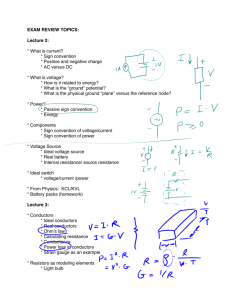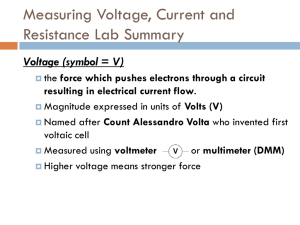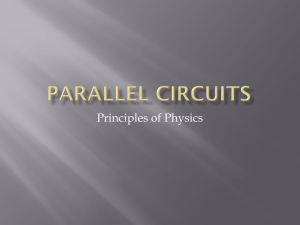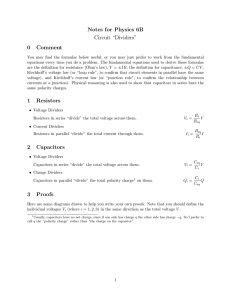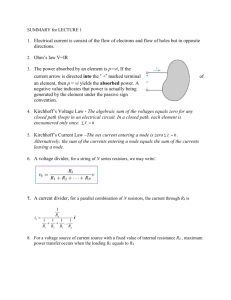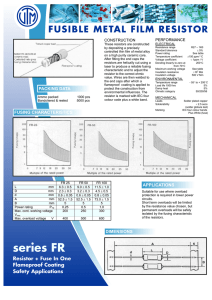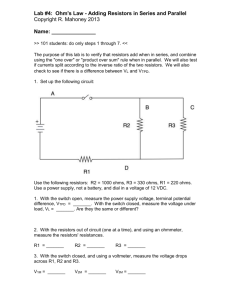EXAM REVIEW TOPICS: Lecture 2: * What is current? * Sign convention
advertisement
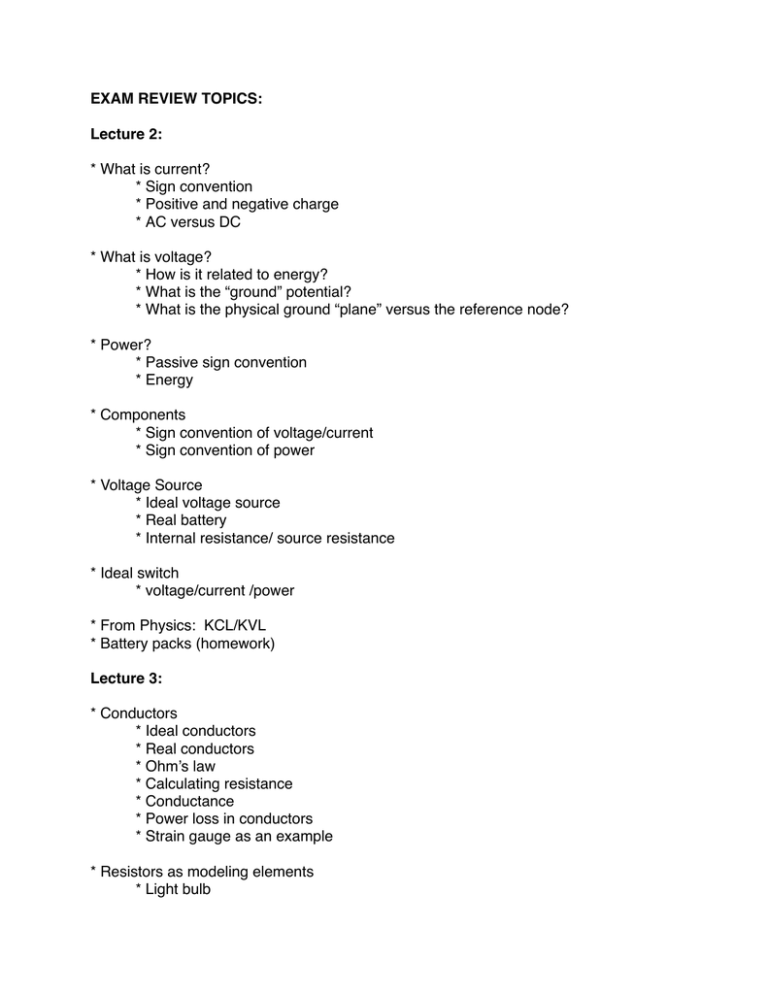
EXAM REVIEW TOPICS: Lecture 2: * What is current? * Sign convention * Positive and negative charge * AC versus DC * What is voltage? * How is it related to energy? * What is the “ground” potential? * What is the physical ground “plane” versus the reference node? * Power? * Passive sign convention * Energy * Components * Sign convention of voltage/current * Sign convention of power * Voltage Source * Ideal voltage source * Real battery * Internal resistance/ source resistance * Ideal switch * voltage/current /power * From Physics: KCL/KVL * Battery packs (homework) Lecture 3: * Conductors * Ideal conductors * Real conductors * Ohm’s law * Calculating resistance * Conductance * Power loss in conductors * Strain gauge as an example * Resistors as modeling elements * Light bulb * Motor * Antenna * Speakers * Anything passive! * Energy loss in power delivery * High voltage versus high current * Need for transformers / AC * Resistors * Series resistors * Parallel resistors Lecture 4: * Current source * Dependent sources versus independent sources * Resistive dividers * Voltage dividers * Current dividers * Shorts and opens/Winners and losers * Variable resistors/Pots * Efficiency of divider circuits Lecture 5: * Nodal analysis * counting nodes * reference node * eliminating nodes * super nodes * trivial nodes * Nodal without dependent sources * Nodal with dependent sources * Knowns versus unknowns * Setting up equations in standard formet (LHS = RHS) * LHS = unknowns * RHS = knowns Lecture 6: * Linearity and Superposition * Thevenin Equivalent * Voc and Isc * “Req” approach without internal sources * “Req” with independent sources * Norton Equivalent * Maximum power transfer theorem * Wheatstone Bridge (homework) Lecture 7: * Amplifiers * Terminals * Signal pins versus power pins * Gain * Ideal vs. Real * Input R / Output R * Equivalent circuit * Loading * Dividers at input / output * Effective gain * Cascade * Dynamic Range * Clipping * Types: CC, VV, CV, VC * Most common is voltage/voltage
